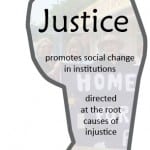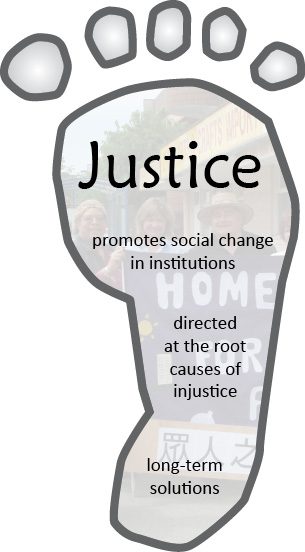For Vincentians Labor Day can and should be a call to justice.
Labor Day – “a yearly national tribute to the contributions workers have made to the strength, prosperity, and well-being of our country. (US Department of Labor)”
There is a powerful poignancy about its celebration this year when so many are out of work not only in the US but around the world.
But long before the US began celebrating Labor Day (1882), Frederic Ozanam in 1848 was standing up for the concept of a “natural wage” forerunner of the “basic minimum wage”.
Until Pope Leo XLII’s first labor encyclical in 1891, the Church institutionally and officially remained silent on workers’ rights throughout virtually all of the nineteenth century and for much of the Industrial Revolution.
The Church’s institutional silence makes Ozanam’ s accomplishments all the more startling, and perhaps explains why the work of the St. Vincent de Paul Society was so immediately attractive to so many persons with material means. Working from classic, timeless Catholic precepts, he galvanized—virtually overnight and by his personal example—a worldwide and enduring movement to alleviate poverty.
It is generally recognized that it was a member of the Society of St. Vincent de Paul Giusseppe Toniolo (1845-1918) was a key advisor to Leo XIII as he wrote the first of what has become the rich library of Catholic Social Teaching. From Leo XIII through John XXIII to Benedict XVI the Popes have been been reminding us of the dignity of labor and its implications.
So as we recognize the dwindling days of vacation in the northern hemisphere the followers of Vincent and Louise would do well to reflect on how well we know and foster social justice so deeply embedded in our tradition.
Some may wish to use the following more detailed Examination Of Conscience In Light Of Catholic Social Teaching found on the Website of the US Bishops Conference.
- Do I respect the life and dignity of every human person from conception through natural death?
- Do I recognize the face of Christ reflected in all others around me whatever their race, class, age, or abilities?
- Do I work to protect the dignity of others when it is being threatened?
- Am I committed to both protecting human life andto ensuring that every human being is able to live in dignity?
- Do I try to make positive contributions in my family and in my community?
- Are my beliefs, attitudes, and choices such that they strengthen or undermine the institution of the family?
- Am I aware of problems facing my local community and involved in efforts to find solutions? Do I stay informed and make my voice heard when needed?
- Do I support the efforts of poor persons to work for change in their neighborhoods and communities? Do my attitudes and interactions empower or disempower others?
- Do I recognize and respect the economic, social, political, and cultural rights of others?
- Do I live in material comfort and excess while remaining insensitive to the needs of others whose rights are unfulfilled?
- Do I take seriously my responsibility to ensure that the rights of persons in need are realized?
- Do I urge those in power to implement programs and policies that give priority to the human dignity and rights of all, especially the vulnerable?
- Do I give special attention to the needs of the poor and vulnerable in my community and in the world?
- Am I disproportionately concerned for my own good at the expense of others?
- Do I engage in service and advocacy work that protects the dignity of poor and vulnerable persons?
- As a worker, do I give my employer a fair day’s work for my wages? As an owner, do I treat workers fairly?
- Do I treat all workers with whom I interact with respect, no matter their position or class?
- Do I support the rights of all workers to adequate wages, health insurance, vacation and sick leave? Do I affirm their right to form or join unions or worker associations?
- Do my purchasing choices take into account the hands involved in the production of what I buy? When possible, do I buy products produced by workers whose rights and dignity were respected?
- Does the way I spend my time reflect a genuine concern for others?
- Is solidarity incorporated into my prayer and spirituality? Do I lift up vulnerable people throughout the world in my prayer, or is it reserved for only my personal concerns?
- Am I attentive only to my local neighbors or also those across the globe?
- Do I see all members of the human family as my brothers and sisters?
- Do I live out my responsibility to care for God’s creation?
- Do I see my care for creation as connected to my concern for poor persons, who are most at risk from environmental problems?
- Do I litter? Live wastefully? Use energy too freely? Are there ways I could reduce consumption in my life?
- Are there ways I could change my daily practices and those of my family, school, workplace, or community to better conserve the earth’s resources for future generations?
For rich source of insight into how other faith tradition approach labor and justice visit the Interfaith Worker Justice site.
Tags: Featured, Labor Day, social justice


US Bishops’ Labor Day statement